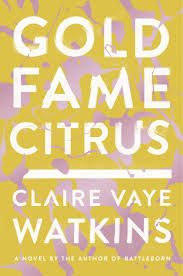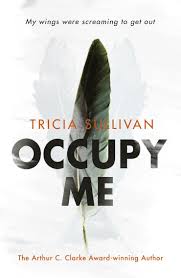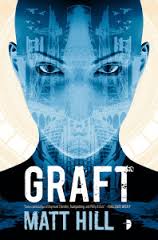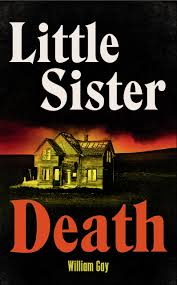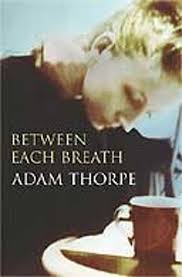 Jack Middleton is a modernist classical composer and a fairly successful one. Arising from humble beginnings, he finds himself married to beautiful heiress Milly, living in a big house in Hampstead with as many lucrative commissions as he cares to accept. His life is thrown into turmoil when he encounters Kaja, a young student working in a cafe in Tallinn. He compartmentalises the encounter as a romantic interlude, affecting at the time but irrelevant to the main course of his life. But when this past indiscretion comes back to haunt him, the faultlines in his perfect existence begin to reveal themselves.
Jack Middleton is a modernist classical composer and a fairly successful one. Arising from humble beginnings, he finds himself married to beautiful heiress Milly, living in a big house in Hampstead with as many lucrative commissions as he cares to accept. His life is thrown into turmoil when he encounters Kaja, a young student working in a cafe in Tallinn. He compartmentalises the encounter as a romantic interlude, affecting at the time but irrelevant to the main course of his life. But when this past indiscretion comes back to haunt him, the faultlines in his perfect existence begin to reveal themselves.
*
My heart thumped in my ears, but not from the exercise. I knew, somehow, as I pushed the cafe door’s loose handle down (it was a nicely old-fashioned French-style door), that I was doing the wrong thing, taking the wrong turn. But it excited me too because at some level it was a recognition that I was freer than I’d ever realised. (p 40)
Jack Middleton is the classic kind of English middle class sexist – the kind that has no idea that he is one. Both Milly and Kaja are made to look subtly ridiculous – Milly because she’s rich, ducks out of Oxford without getting her degree, and dresses up like Cleopatra whilst working to aid Palestinian refugees, Kaja by being made to look ten years younger than she is, by – in spite of her sexual allure – being made to seem naive and inexperienced in terms of relationships, by being foreign. Both women are gifted with intellectual capacities just sufficient to intrigue and captivate and surprise our ennui-laden hero, but never sufficient to outclass or scare him. Jack seems to have a Lawrence Durrell approach to women that sanctifies and patronises at the same time. It is intensely wearying.
Opening a book like this is always disconcerting. Is Thorpe aware of what Jack is like, or not? Is he incapable of writing women as equal human beings, or is he portraying them through Jack’s entitled eyes? In spite of any misgivings, I cannot help noticing that this is the best written book I’ve read since Sarah Hall’s The Wolf Border.
The woman seemed to have a wind-billowing tent for a dress and something on her head, but she was in silhouette and the moonlight behind her was dimmer, now. She was crying. He couldn’t hear her crying but he knew she was because the whole dark room thrilled with it: the walls were – to put it in the way he was feeling it (almost as a visual thing) – running with her tears. There was nothing he could do: he knew it was a ghost, a spectral presence left over from some far-off time, like a means to an end that never came. He lay there looking at her and absorbing her sorrow. He felt he was helping her, simply by sharing the burden. (p 249)
Sudden irruption of the fantastic in a completely matter-of-fact way. There is no doubt here that the ghost is real, that Jack is seeing it. The book continues to be a mystery. Jack is the most selfish and entitled hero, squandering his talent in laziness and an ineffectual resentment of nothing very much. He has precisely nothing to say about music, his intellectual curiosity drowned in the ennui that comes from having too much and feeling vaguely guilty about it but not guilty enough to get off his arse and do better. And yet Between Each Breath is – almost unwittingly – one of the most accurate commentaries on turn-of-the-century Britain I’ve read, a pitch-perfect capture of a particular London milieu, the dire passivity of the middle classes. It chills because it’s so real. What to do? Thorpe’s writing is of a higher quality than anything McEwan has written since Enduring Love.
Jack was impressed by her history. She had somehow seen more than him. He couldn’t imagine it. (p 300)
But Jack has seen NOTHING – and how can he believe even for a moment that he has? The way he patronises Kaja, even in his mind – for speaking English with a foreign accent, basically – is breathtakingly awful.
I’m paying for this too dearly. All I did was score with her. (p 300)
Makes me think of the review by Tibor Fischer in which he says that Thorpe ‘conjures up a whiff of the bunny boiler around Kaja’ and wonder if we’re still, genuinely in a situation where a woman’s aggrieved reaction to being lied to, patronised and emotionally deceived can be routinely described in this way. I admire Tibor Fischer and Adam Mars Jones tremendously both as writers and reviewers but really, their criticism of this novel does not even touch on these aspects and I find it lacking because of that. Are they both too immured within the social stratum Thorpe describes to see it objectively?
As he walked up the three flights to his eyrie, he thought of Kaja quoting Flaubert in French, his remark about the bracken caught in the stirrup. He was a complete pseud: he knew sod all about literature, French or otherwise. Or about much else.
All he knew about was music. In a sort of swollen, over-developed way. Parallel to life. Its own world. Like maths.
But birds made music, didn’t they? (p 343)
Thorpe’s purpose begins to come clear as Jack’s world begins to fall apart. The novel is about the fundamental opposition between the world of capital and acquisition we inhabit, and the imperatives of art, and real thought. The latter is all but impossible in the context of the former. Jack has believed he can have both. He is being shown otherwise. Does he really love Milly, or the world that Milly has granted him access to? He is about to find out.
The drips in her arm, the bruises they made, the saline solution and waste bags around her like her innards pulled out on wires: he felt deadened to it all, to the horror of it. She’d once been a shop floor supervisor in a sausage factory, bustling about, giving orders, laughing and scolding in a white coat with a clipboard and beehive hairdo, looking like a doctor. He had to remember this. (p 349)
In his portrayal of Jack’s parents, and Jack’s mother’s decline and death, Thorpe captures with searing intensity the daily realities of a Britain – in contrast with the ludicrous excesses tussled over by sections of the capital – very much in decline. Donald and Moyna are deprived without knowing precisely how they are deprived. They are stoic, undemanding, ignorant, kind, casually, thoughtlessly racist, backward-looking, both grounded and lost. They soldier on until they absolutely cannot take another step. As a portrait of England this is testing and awful and achingly sad and real. This is everything Jack was desperate to escape – he loves his parents, he can never explain. But what has he escaped to?
As usual, despite flicking through his Selected Baudrillard beforehand in search of some killer phrase for any occasion, he found the others wittier and more intellectual, freighted with arcane, encyclopaedic knowledge about the history of music. Even the young Abigail Staunton defied her Top Shop look and sparkled with references to the Gerber Variable Scale, imperialist assumptions and her recent trip to Lebanon. Above all, they knew what they were doing when they composed. His reference to Shostakovich was mangled by nerves. If he’d been asked to spell him, he’d probably have got it wrong. (p 387)
Fascinating, how Thorpe has made Jack like this on purpose – ‘the Ulysses of subtopia’. Living with his dad in Hayes after his mother’s death, he has come full circle. ‘He would have to blow himself to smithereens and start again.’
And through all this the traffic moved steadily and with a sinuous heaped motion onwards towards no discernible place and for no discernible reason. Jack saw this through the spittled windscreen, or from the squeezed pavements of Hayes, and heard a harp. He had never heard a harp play what he was hearing it playing. It was playing the greyness of England. It was playing this weather. It was playing this English reality of ashen, utterly leaden futility. Of spoliation. Of flag-fluttering retail parks and commercial estates spread in a cancerous ring around every town. Of people with too much money and the people they’d taken it from, who no one cared a hoot about. Of the zillions that went into scuttling the green land and the clear air that must have existed once, not all that long a time ago. (p 391)
Brilliant, brilliant lines. Why do all the reviews of this book seem to concentrate on categorising it as a ‘reprise of the Hampstead novel’? In fact it is something far bleaker, far more serious, far more important. Thorpe is angry but it’s a very British, very embedded anger. What Thorpe is saying with this book does fire rage in me, and inspiration too.
Jack’s piece for St George’s Day is called ‘Grey Days’ – a complete shredding and reimagining of his former practice, which imposed all those ludicrous faux-modernist titles upon empty work.
On p 393, Jack finds himself. He finds the place he should always have started from. Everything Thorpe intended with this novel is revealed. And it is very, very good.
‘You know, it was like we…us two…we coincidenced,’ she said. (p 415)
Is that what it is? The stark reality of this story is about the necessity of Jack and Kaja meeting, in order that Jaan, who is exceptional, will be born? Jack, meddling once again in something he cannot understand, indirectly brings about a tragedy. Life never stands still. There is no happy conclusion – just the march of history.
I would love to know from Thorpe: at which stage in his writing did he decide to write that prologue?
*
I picked up this book because I’d been thinking about Adam Thorpe’s first novel Ulverton, the way it is structured, its intimate relationship with history and with the English landscape. I was drawn to Between Each Breath because it is a ‘music novel’, an area of literature I am irredeemably pulled towards and that feels particularly relevant to me now because of work I’m planning. As it turns out, music specifically has less importance for this novel than the idea of art – and of making art – in general. I was prepared to find this frustrating but it turned out not to matter. Between Each Breath is one of the most absorbing, skilfully worked and finally moving novels I’ve read in quite a while.
Thorpe plays a long game – this novel does not give up its secrets or its intent in five minutes, or even the first three hundred pages. But persistence is rewarded, and intensely so. This novel has more to say about the way we live now than so many of those insipid and rather smug ‘zeitgeist’ novels that have been incessantly and needlessly discussed in the broadsheet review columns – Ian McEwan’s pompous Saturday, for example, or Martin Amis’s ludicrous misfire Lionel Asbo. Thorpe’s is the kind of fiction that does so much more than take a sideswipe at newspaper headlines from a comfy armchair. It is a sustained act of imagining, and has true purpose. In every sense of the word, it is a great English novel.
You can read a superb interview with Adam Thorpe here.
